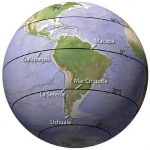
How Do We Evaluate Sites for Solar-Energy Generation?
SOLAR ENERGY IS A RENEWABLE SOURCE of light, heat, and electricity. Solar energy is typically collected with a solar panel, which can generate electricity or can heat air, water, or some other fluid. You have an opportunity to evaluate the solar-energy potential of five sites in South America, using concepts you have learned about insolation […]
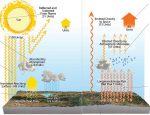
How Does Earth Maintain an Energy Balance?
SIXTY-NINE PERCENT OF INSOLATION received at the outside of the Earth's atmosphere is available for sensible, ground, and latent heating. Ultimately all of this energy must be returned to space as longwave radiation in order to attain a balance between incoming and outgoing radiation. A greater loss to space would cool the global system, and […]

What Is Energy and How Is It Transmitted?
THE TRANSMISSION OF ENERGY, and the interactions between energy and matter, define the character of our planet and control weather, climate, and the distribution of life, including humans. Here, we examine the fundamentals of energy, including what it is, where it comes from, and how it is moved from one place to another. What Is […]

Energy and Matter in the Atmosphere
TOPICS IN THIS CHAPTER What Is the Atmosphere? What Is Energy and How Is It Transmitted? What Are Heat and Temperature? What Is Latent Heat? What Is Electromagnetic Radiation? What Controls Wavelengths of Radiation? What Causes Changes in Insolation? Why Does Insolation Vary from Place to Place? Why Do We Have Seasons? What Controls When […]
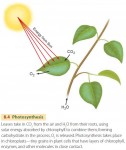
Energy and Matter Flow in Ecosystems
This chapter is the first of two chapters that look at biogeography. Biogeography focuses on the distribution of plants and animals—the biota—over the Earth. It identifies and describes the processes that influence plant and animal distribution patterns. Ecological biogeography looks at how the distribution patterns of organisms are affected by the environment. Historical biogeography focuses on how spatial distribution patterns of organisms arise […]
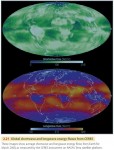
CERES—Clouds and the Earth’s Radiant Energy System
The Earth's global radiation balance is the primary determinant of long-term surface temperature, which is of great importance to life on Earth. Because this balance can be affected by human activities, such as converting forests to pasturelands or releasing greenhouse gases into the atmosphere, it is important to monitor the Earth's radiation budget over time as accurately as possible. For nearly 20 years, NASA has studied the […]
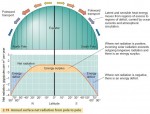
Net Radiation, Latitude, and the Energy Balance
Although the energy budgets of the Earth's surface and atmosphere are in balance overall, their budgets do not have to balance at each particular place on the Earth, nor do they have to balance at all times. At night, for example, there is no incoming radiation from the Sun, yet the Earth's surface and atmosphere still emit out going radiation. Net […]
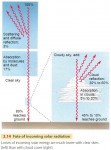
The Global Energy System
Human activity around the globe has changed the planet's surface cover and added carbon dioxide to the atmosphere. Have we irrevocably shifted the balance of energy flows? Is our Earth absorbing more solar energy and becoming warmer? Or is it absorbing less and becoming cooler? If we want to understand human impact on the Earth–atmosphere system, then we need to examine the […]
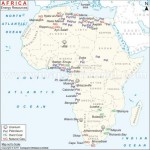
Energy and Energy Resources
Africa's resources include an abundant supply of petroleum, natural gas, and wood for fuel. The continent also has numerous rivers and waterfalls that could provide hydroelectric power. But Africans rely mostly on wood for energy. Most of the continent's other resources are expensive, available only in small quantities, and in limited areas. For a number of reasons, the development of […]

energy geography
ENERGY GEOGRAPHY IS a subdiscipline of geography that draws from many philosophical and thematic traditions, but it is primarily positioned in the interface of environmental and economic concerns. The extraction, harnessing, and consumption of the natural resources that supply society with our energy needs have always been central to economic activities. Over time, however, it […]